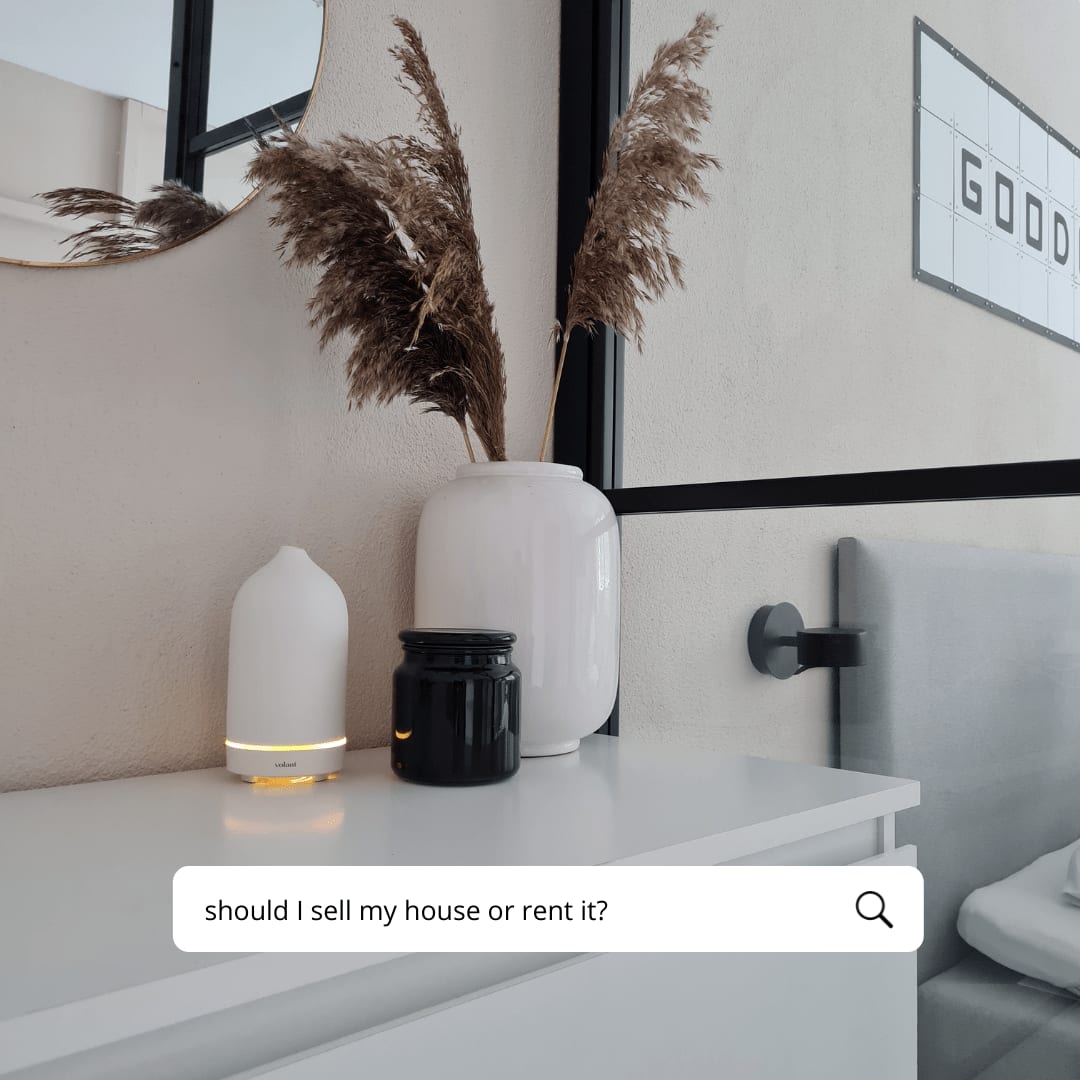So you are sure it’s time to make a move, but you aren’t entirely sure if you should sell your home or rent it out. Let’s see if I can help. There are a number of factors you should consider.
Real estate investments can be a great wealth-building tool, and a rental property is one of the largest assets you can have. With a little bit of time and effort, it can be a great way to generate passive income. It can even be a safer investment option which can provide some insulation against inflation.
If you’ve been asking yourself if you should sell your home or rent it out, here are a few things to think about before you take the leap into becoming a landlord.
- Are you ready to be a landlord?
You need to take some time to seriously think about your ability to manage your properties. Unless you use a property management company (that typically takes 10% off the top of your rental income), you are the one who will handle repairs and maintenance on the property. Do you have the time and availability to answer tenant calls and requests? It certainly helps if you’re handy; otherwise, you’ll be wasting a lot of your income on plumbers, electricians, and other specialists. You’re going to need to find some trustworthy and reasonable tradespeople if you plan on becoming a landlord. I can put you in touch with some professionals I’ve used in the past successfully. - Does it make sense financially?
Do you need the equity in you current home to purchase a new home? OR is it possible to refinance your current home and pull money out to use for a down payment on a new home?
Are you in a place financially to maintain two properties? If you decide to take on this investment with a partner, make sure you outline the responsibilities clearly at the onset so as to avoid any conflicts down the road. - Calculate your margins
Would the current market rent cover the current mortgage payment? It is standard practice to set a goal of a 10% return. Estimate maintenance costs at 1% of the property value annually, and always factor in unexpected costs (like potential vacancies). Make sure you budget for monthly expenses as well such as pest control and exterior maintenance. - Know where and what you want to buy
You should have a clear understanding of the market and where it’s heading. Ideally, you should purchase an investment property in an area that’s seeing an influx of renters and increase in rental values but the home values haven’t peaked yet. This would give you bigger net income than buying a place for top dollar because there are strong rental prices in the area. Think long term. Speaking to a realtor, like me, can help you identify some of these areas.
It may make more sense to sell if:
- There’s a high demand for homes in your neighborhood.
- Your home needs a lot of repairs and updates, such as new mechanical systems, roof, etc. or cosmetic upgrades to appeal to renters
- You live in an area that isn’t enticing to renters
- You don’t have the time, energy, or know-how to be a landlord

